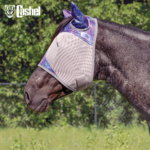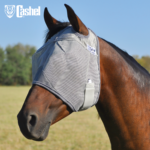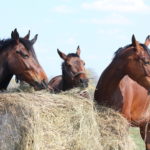Land O Lakes/Purina has issued feed recalls, or ”retrievals,” for a variety of their brands manufactured between the dates of November 3, 2007, and March 10, 2008. These feeds were identified to contain greater than 20 ppb of aflatoxins, originating from a single ingredient from a single supplier. Only specific manufacturing plants and dates are involved. The recalled products also vary.
As of May 6, 2008, the contaminated feeds had been distributed in the following states: Connecticut, Delaware, Georgia, Maine, Maryland, Massachusetts, New Hampshire, New Jersey, New York, North Carolina, Pennsylvania, Rhode Island, South Carolina, Tennessee, Vermont, Virginia and West Virginia.
The manufacturing plants involved, and dates, are:
• Statesville, North Carolina: Feeds manufactured between November 3, 2007, and February 8, 2008.
• Harrisburg, Pennsylvania: Feeds manufactured between January 1, 2008, and February 8, 2008.
• Guilderland, New York: Feeds manufactured between January 8, 2008, and March 10, 2008.
If you have purchased a Purina feed and live in one of the involved states, check the bottom edge of your feed bag for a date code. The date codes on Purina feeds are in this format:
7NOV03STA
The first number is the year. ”7” = 2007, ”8” = 2008. The next code is the month. ”NOV” = November. Next two digits are the day. ”03” = 3rd (of November in this case). Last three letters are the plant code. STA = Statesville. HAR = Harrisburg. GLD = Guilderland.
If you have feed from one of these three plants manufactured within the recall dates, call your feed dealer to see if your specific brand is involved in the recall. If you purchased feed during the time frames listed for the recall but no longer have your bags, call your dealer anyway to see if the feed you use was involved in the recall.
If your horses are having health problems of unknown cause, call your veterinarian and let him/her know you may have fed aflatoxin-contaminated feed. Feed, urine or liver biopsy tissues can be tested for aflatoxin and aflatoxin metabolites. Your state’s Department of Agriculture should also be notified if your veterinarian suspects feed-related health issues.
Note: As of May 6, this was an ongoing issue. Further recalls could be issued. Details are still very sketchy. Other feeds could also be involved, but no details are available. Signs range from acute liver failure to stunted growth in young horses, poor hair coat, abnormal liver enzymes on blood chemistry, jaundice (yellow eyes and gums), feed refusal, unexplained loss of condition, poor immune system function. Fetal abnormalities have been reported in other species.





